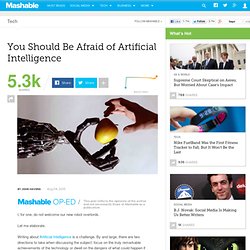

Pour le gouvernement, la France de 2025 sera sauvée grâce aux "nouvelles technologies" Le Monde.fr | • Mis à jour le | Par Jonathan Parienté Pendant l'été, les ministres devaient plancher sur la France telle qu'elle serait en 2025.

L'échéance était fixée par la présidence de la République au 19 août, mais cinq ministères – économie, justice, intérieur, logement et redressement productif – ont d'ores et déjà rédigé leur copie, que Le Point s'est procurée. Ce qui frappe d'emblée, c'est l'optimisme sans doute un peu excessif des ministres. Si l'on en croit leur prose, on assistera en effet au retour du plein emploi, le pays se sera remis de son déclin industriel, les peines prononcées seront enfin "lisibles et efficientes", la justice sera proche des citoyens, la part du logement dans les dépenses des foyers aura reculé, etc. Bref, toutes les réformes voulues par le gouvernement auront porté leurs fruits, tous les espoirs auront été satisfaits et tous les indicateurs seront au vert dans une France qui aura réussi sa mue. Des services publics plus efficaces et moins onéreux. You Should Be Afraid of Artificial Intelligence.
I, for one, do not welcome our new robot overlords.

Let me elaborate. Writing about Artificial Intelligence is a challenge. By and large, there are two directions to take when discussing the subject: focus on the truly remarkable achievements of the technology or dwell on the dangers of what could happen if machines reach a level of Sentient AI, in which self-aware machines reach human level intelligence). This dichotomy irritates me. I don’t want to have to choose sides. Not to shock you with my mad math skills, but 2023 is 10 years away. In all of my research, I cannot find a definitive answer to the following question: How we can ensure humans will be able to control AI once it achieves human-level intelligence?
How we can ensure humans will be able to control AI once it achieves human-level intelligence? This Is Your Brain on the Internet (Maybe) Headlines like “Is Google Making Us Stupid?”

Or “Is the Internet Making Us Dumber?” Quite clearly show that people are concerned about what the Internet is doing to our cognition. Some have speculated that the Internet has become a kind of external hard drive for our brains, eliminating our need to really learn or process information. Others point to the obvious advantages of having more information available to more people than at any other time in history. As our lives become increasingly wired, we are now stepping back to see just how deep down the connections go. In the late 1980s, communication researchers began shifting to a view of human communication that was more cognitively based. The trigger to transition between styles in this dual-process cognition is partially dependent on the sufficiency principle.
Where I think many of the “the Internet is making us stupid” claims get it wrong is that these detractions also apply to other mediums. 1. Penser ? Il y a une application pour ça ! Essentiellement manuscrit dans les monastères, le livre fut longtemps le véhicule de la seule pensée religieuse avant que les laïcs ne s'en emparent bien plus tard. « Avant l'imprimerie, la Réforme n'eût été qu'un schisme, l'imprimerie l'a faite révolution », constatera Victor Hugo.

Ainsi le livre installa-t-il pour certains une nouvelle manière de communiquer, mais aussi un schéma de pensée linéaire propice à la pensée argumentative et au retour critique. Selon cette thèse, une partie substantielle de l'expérience humaine fut ainsi façonnée par l'imprimé. Comme la pensée elle-même l'est par les mots qui ne se limitent pas à la fonction d'« exprimer». Nombreux sont les écrivains qui soulignent aujourd'hui les différences - subtiles mais bien réelles - entre les textes « écrits » et ceux « pensés à la machine ». C'est une évidence assez souvent méconnue que nos outils nous façonnent autant que nous les façonnons nous-mêmes. David Auerbach, Evgeny Morozov & Ben Wizner on Livestream. The Internet’s Verbal Contrarian. Evgeny Morozov: 'We are abandoning all the checks and balances'
Evgeny Morozov is a Belarus-born technology writer who has held positions at Stanford and Georgetown universities in the US.

His first book, The Net Delusion, argued that "Western do-gooders may have missed how [the internet]… entrenches dictators, threatens dissidents, and makes it harder – not easier –to promote democracy". It was described as "brilliant and courageous" by the New York Times. In his second book To Save Everything, Click Here, Morozov critiques what he calls "solutionism" – the idea that given the right code, algorithms and robots, technology can solve all of mankind's problems, effectively making life "frictionless" and trouble-free.
Morozov argues that this drive to eradicate imperfection and make everything "efficient" shuts down other avenues of progress and leads ultimately to an algorithm-driven world where Silicon Valley, rather than elected governments, determines the shape of the future. But they can still solve problems? All solutions come with cost. Lifehacking is just another way to make us work more. Photo by Eric Vidal/Reuters Buzzwords that emerge from Silicon Valley are usually vapid and imprecise.

(Let's just agree that “the sharing economy” must become “user-centric,” OK?) Lifehacking, in contrast, has always had provocative, even emancipating connotations. Coined by the technology journalist Danny O'Brien in 2004, the term life hack quickly became staple of techspeak. In 2011 life hack—defined as “a strategy or technique adopted in order to manage one’s time and daily activities in a more efficient way”—was even added to Oxford Dictionaries Online, a first step toward mainstream recognition. The original thinking behind “lifehacking” was intriguing. In practice, of course, things are more complicated.